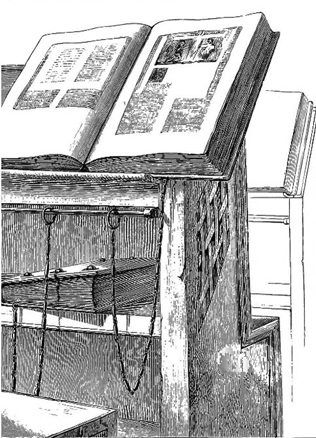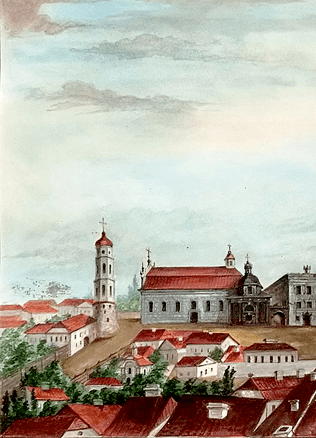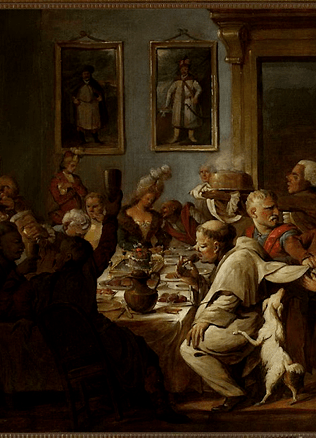Criminal Cases: Everyday Relations between Peasants and their Masters
Violence that breaks the estate boundaries
Peasants feature the murder and battery cases against the nobility. It was in 1752 in the town of Maišiagala that the local nobleman, Jan Suchodolts, became a victim of violence together with his peasants. The complaint to the court says that Agata Gonsiewska, the wife of the local official in the powiat of Smolensk, ordered her peasants and the residents of Maišiagala, armed with shotguns and other weapons, block the streets of the town and beat up the plaintiffs after the church service. Stanisław Komar, the rittmeister of the district of Ašmena, was murdered in an inn in 1779. The complaint states that one Suszycki and his subjects, including peasants, a coachman and an organist, killed him.
Peasant would take part in raids too. In 1745, Magdalena Kulczycka wrote in her complaint against Michał Skorulski and Jan Bielski, the regional officials in the districts of Kaunas and Brest, that while a number of peasants had been stealing her hay, another peasant, Baltramiej Nestan, who was on a horse kicked her and lashed her with a whip; he called her a sorceress and admitted the whole thing “had been commanded by our master.” Acting as plaintiffs, the Witejko family wrote in 1749 that the family of Komar sent their people to the field bordering the Witejkoąs lands in the village of Zdoniškiai (in the present-day district of Širvintos). The assailants plundered food storages and used violence against the opposing peasants.
Daniela Męczinska, the woman who owned the lands, was beaten by the attackers while some of them laid a scythe on her throat and threatened to cut her head off.
Peasants often feature the extortion cases. in 1750, Zuzana Zaleska together with her son Martin and other representatives of the nobility protested against Michał Judicki, the castellan of the voivodeship of Minsk, lieutenant Maksimilian Rozenfeld and their peasants from Merkinė, in the vicinity of Tabariškės. According to the plaintiffs, they were on their way home after the church service in Turgeliai as they were stopped by the defendants armed with clubs, swords and stakes who exerted violence to strip them of a whip, a horse, a cap and a sword worth five talers.
Were peasants the indomitable criminals or merely tools of nobles infighting?
Why would peasants use violence against other noblemen? The order of their own master is the most often cause according to the surviving documents. Why would peasants or manor servants take part in the criminal endeavours by their masters? That’s because they were dependant on their landlords. It is likely that sometimes they would expect certain concessions from their masters, including less corvée labour and other duties, for their role in the criminal activity organised by the noblemen.
Occasionally the court documents witness that the nobility would push their subjects into violence.
The 1760 conflict between Konstancja, Baltramiej, Franciszek and Tadeusz of the Chszanowski family and Marijan Maigi, the construction supervision official in the powiat of Ukmergė, reveals just that. The complaint says that Maigi, the defendant, drank vodka throughout the night together with his subjects before raiding the possessions of the Chszanowski family.
Do You Know?
Some cases talk about the acts of humiliation in order to insult nobleman’s honour. The court official in charge of obduction, or check-up, found in 1753 that Marcin Tyminski, a regional official from the land of Dobryn who was locked up in an inn, had to surrender his boots and trousers to Julian Oganowski and his mates who dressed Tyminski with old worn-out trousers, a rough żupan, put on shoes without soles and peasant-style cap before brutally beating him up. It was in 1754 that Stanisław Wenclawowicz and his peasants captured Jan Hlebicki, the treasurer of Livonia, and eventually left him severely beaten up and with a straw crown on his head.
Sometimes the court cases reveal the wrangling between peasants belonging to different landlords. The latter were accused of covering the guilty peasants up.
Michał Baksz, a peasant from the lands owned by Barbara Skorulska, a regional official of the Kaunas powiat, faced charges of violence in 1738. The peasant allegedly met Jan Karka, the peasant of Michał Petrowski who served as a parson and a dean in the town of Pobojsk, on the road where he beat him up with an aspen club and “treated him worse that a beast.” Karka died of injuries several days later without regaining the ability to speak. The parson complained that Skorulska, the landowner, would not extradite the culpable subject. The defendants did not respond to the parson’s complains, therefore he sent Miszkewicz, a local nobleman, to make things clear but the administrator of the village of Vaitkuškis, Michał Zylewicz, beat him up. In the 1755 complaint to the court, the Elder of the Vilnius powiat Tomasz Kowecki, who also was a steward of lands owned by Michał Kazimierz Radziwiłł Rybeńko was accused of violence exercised by a peasant under his control, Józef Worny. The latter apparently forayed and killed the nobleman Jerzy Petucha on the road by the lake of Gilužis in the vicinity of the town of Buivydiškės. The complaint also stated that Worny was guilty of more acts of murder.
Peasants, just like the nobility, would sometimes face death penalties. It was in 1757 that a nobleman from the present-day region of Šalčininkai, Józef Marinowski (or Maninowski), together with his peasants, drowned his counterpart, Walerian Brzezinski, in a swamp at the village of Jurežiškės and afterwards laid his body in bed. The defendant and his peasants received death sentences by quartering.
The above examples reveal that peasants would often act as their masters’ “partners” in criminal activity. It is difficult to tell whether it was the peasants’ initiative or were they induced by their masters. Very often conflicts would arise spontaneously, without any knowledge or backing by the nobility. Sometimes fights between two neighbouring villages would rise into greater conflicts. Landowners and their administrators would very seldom bother to intervene to stop them.
Domininkas Burba



